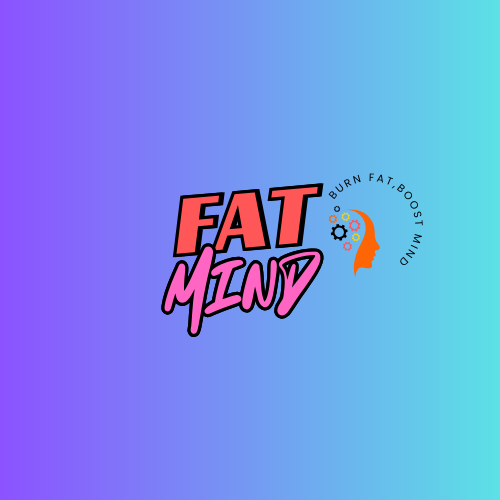Introduction: The Hormonal Link Between Belly Fat and Mental Health
Your body’s hormones play a crucial role in regulating weight, fat storage, mood, and mental clarity. An imbalance in insulin, cortisol, estrogen, testosterone, thyroid hormones, and serotonin can lead to:
- Increased belly fat
- Higher stress and anxiety levels
- Mood swings and brain fog
- Slower metabolism and difficulty losing weight
Understanding how hormones impact belly fat and mental stability can help you make dietary and lifestyle changes to restore balance and improve your overall health.
The Science of Hormones and Belly Fat
1. Insulin: The Fat-Storing Hormone
- Function: Insulin regulates blood sugar and determines whether calories are stored as fat or used for energy.
- Effect on Belly Fat: High insulin levels promote fat storage, especially in the abdomen.
- Effect on Mental Health: Blood sugar spikes and crashes cause irritability, fatigue, and brain fog.
- How to Balance: Reduce refined carbs, eat more fiber, and focus on healthy fats.
2. Cortisol: The Stress Hormone That Increases Belly Fat
- Function: Released in response to stress, cortisol helps the body deal with emergencies.
- Effect on Belly Fat: Chronic stress raises cortisol levels, leading to increased cravings for sugary and fatty foods, causing belly fat accumulation.
- Effect on Mental Health: High cortisol levels cause anxiety, depression, and sleep disturbances.
- How to Balance: Practice mindfulness, improve sleep, and engage in regular physical activity.
3. Estrogen: The Fat-Distribution Hormone
- Function: Estrogen regulates fat storage, metabolism, and reproductive health.
- Effect on Belly Fat: Low estrogen levels in menopause lead to increased belly fat storage.
- Effect on Mental Health: Imbalances can cause mood swings, anxiety, and brain fog.
- How to Balance: Eat phytoestrogen-rich foods (flaxseeds, soy), exercise, and maintain a healthy gut.
4. Testosterone: The Muscle-Building and Fat-Burning Hormone
- Function: Helps maintain muscle mass, energy levels, and fat metabolism.
- Effect on Belly Fat: Low testosterone leads to higher fat storage, especially in the abdomen.
- Effect on Mental Health: Affects motivation, focus, and mood regulation.
- How to Balance: Strength training, protein intake, and healthy fats help maintain levels.
5. Thyroid Hormones: The Metabolism Regulators
- Function: Thyroid hormones (T3 and T4) regulate metabolism and energy production.
- Effect on Belly Fat: Hypothyroidism slows metabolism, making weight loss difficult.
- Effect on Mental Health: Low thyroid function is linked to depression, fatigue, and cognitive decline.
- How to Balance: Ensure adequate iodine, selenium, and zinc intake.
6. Serotonin and Dopamine: The Mood and Craving Regulators
- Function: These neurotransmitters influence mood, cravings, and overall mental stability.
- Effect on Belly Fat: Low serotonin levels increase emotional eating and sugar cravings.
- Effect on Mental Health: Low levels cause anxiety, depression, and sleep disorders.
- How to Balance: Eat probiotic foods, get sunlight, and engage in activities that promote happiness.
Best Diet and Lifestyle Strategies to Balance Hormones
1. Prioritize Protein and Healthy Fats
Lean meats, fatty fish, eggs, and nuts support hormone production.
Avocados, olive oil, and coconut oil regulate testosterone and estrogen levels.
2. Reduce Sugar and Processed Foods
High sugar intake leads to insulin spikes and weight gain.
Artificial ingredients disrupt gut bacteria, affecting serotonin levels.
3. Eat Fiber-Rich Foods to Regulate Insulin and Estrogen
Whole grains, beans, and vegetables help remove excess estrogen.
Fiber keeps blood sugar stable, preventing energy crashes.
4. Improve Sleep to Reduce Cortisol and Boost Serotonin
Aim for 7–9 hours of sleep per night to keep hormones balanced.
Reduce blue light exposure before bedtime to improve melatonin production.
5. Manage Stress Through Meditation and Exercise
Yoga and deep breathing lower cortisol.
Strength training boosts testosterone and metabolism.
6. Stay Hydrated and Support Gut Health
Water helps flush toxins that can disrupt hormone levels.
Probiotic foods (yogurt, kefir, kimchi) improve gut health, supporting serotonin production.
Conclusion: A Balanced Hormonal System for a Healthier Body and Mind
Your hormones control fat storage, appetite, metabolism, and emotional stability. By following a hormone-balancing diet and lifestyle, you can reduce belly fat, improve mental clarity, and boost overall well-being.
Next Steps:
- Read More: The Connection Between Gut Health and Mental Health
- Try This: Best Exercises to Balance Hormones and Reduce Belly Fat
